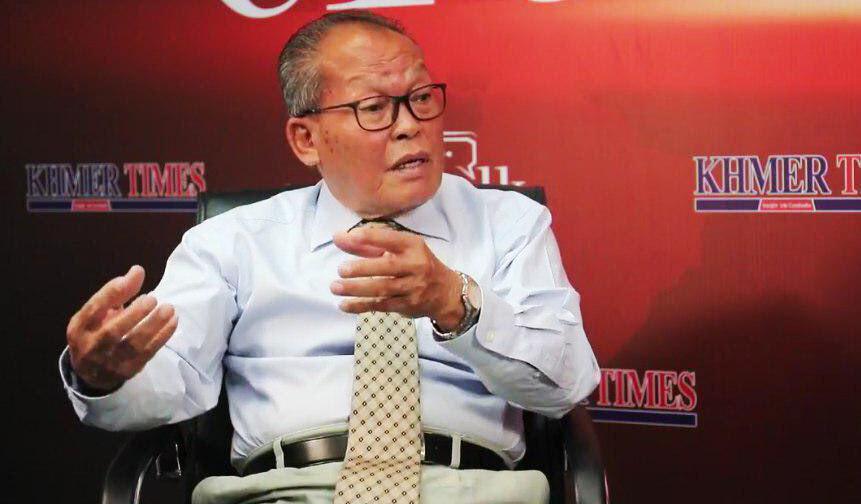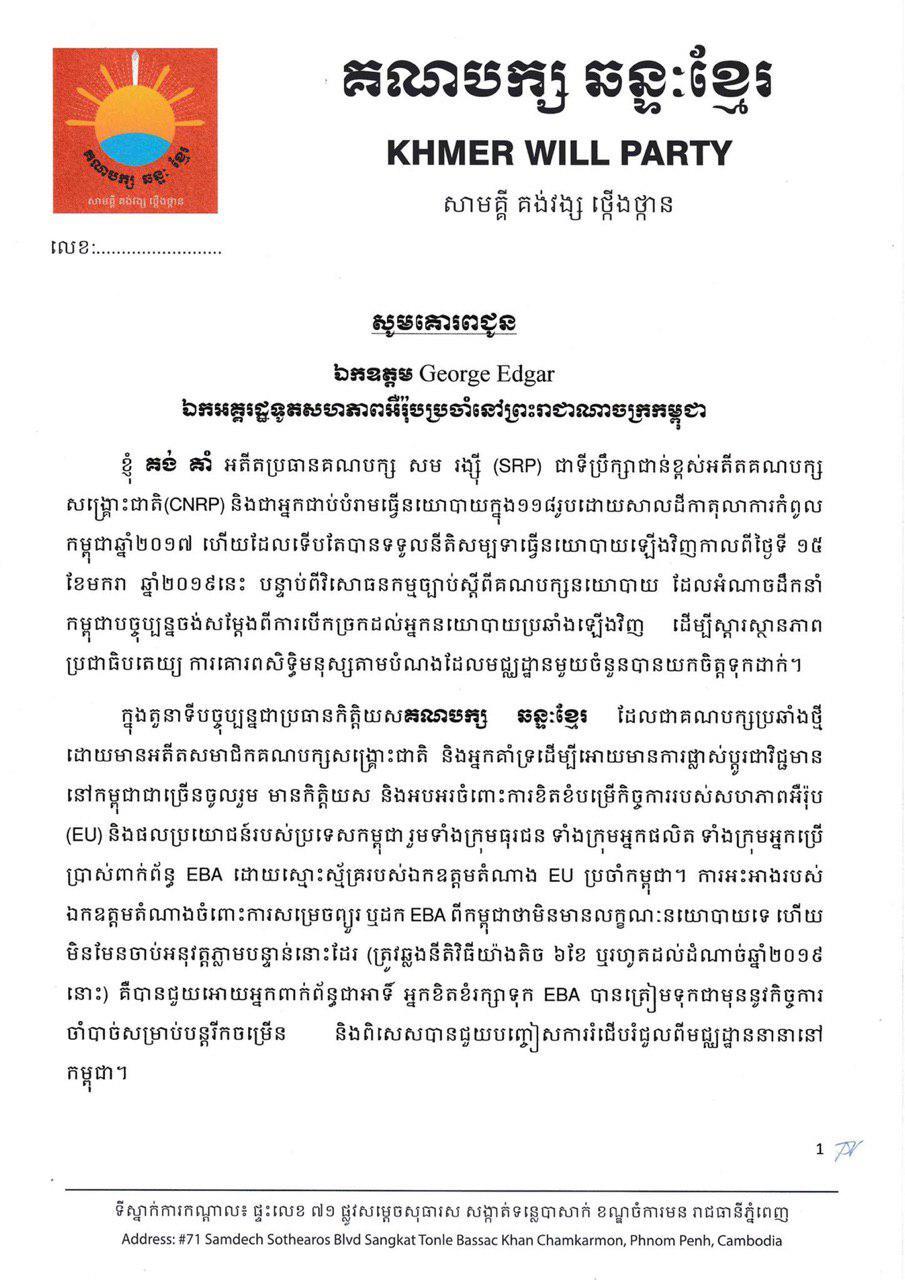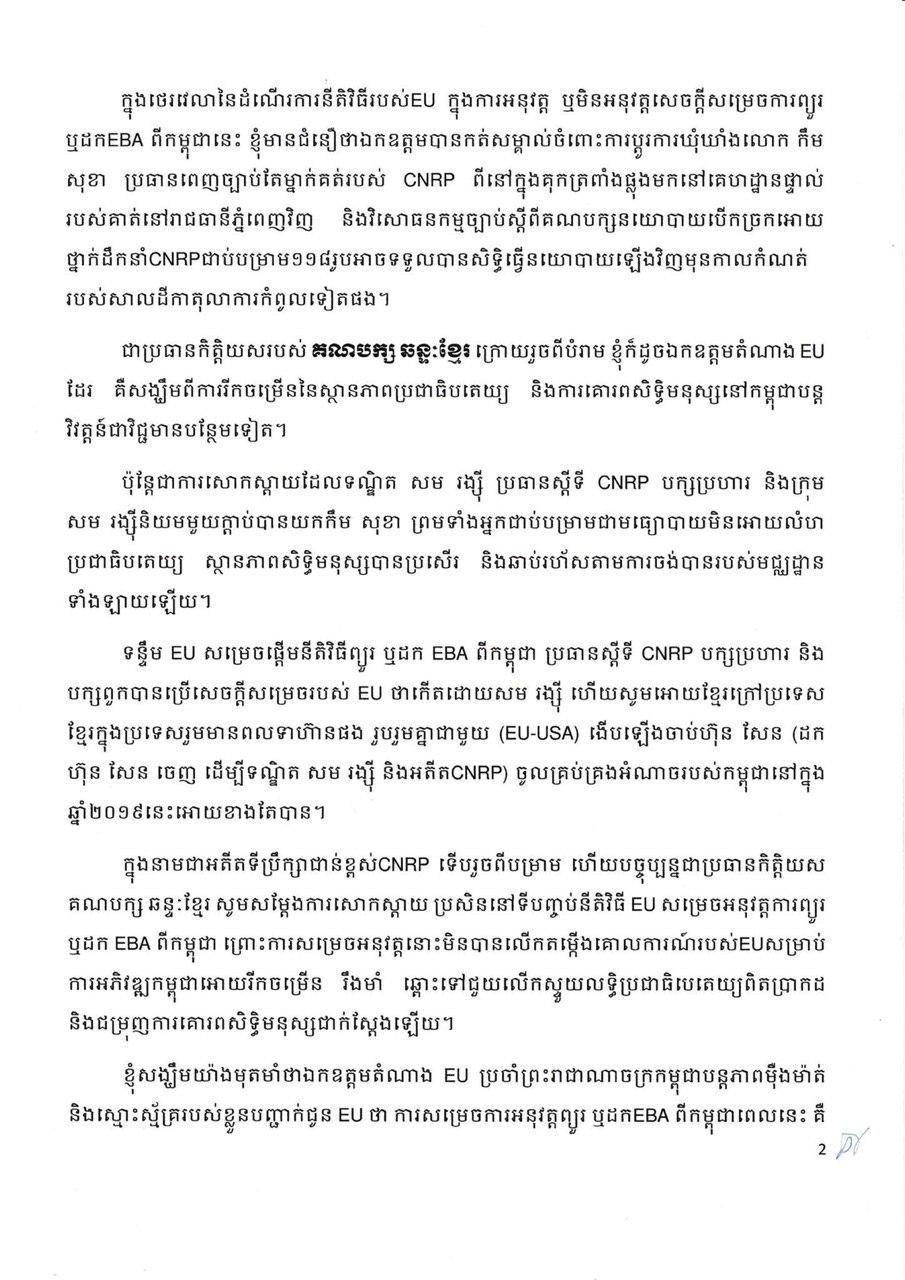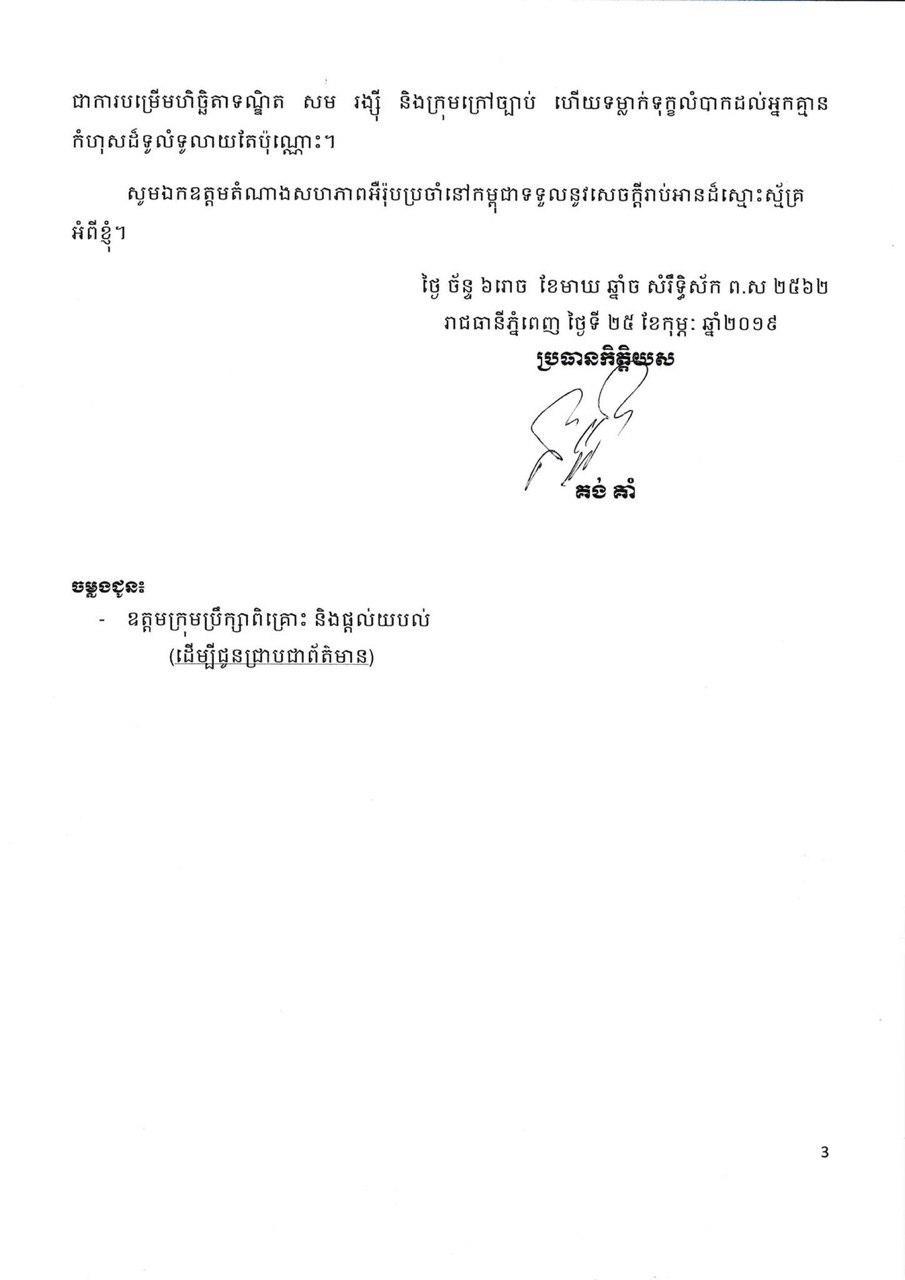Phnom Penh (FN), Feb. 25 - Kong Korm, Khmer Will Party’s honorary president, on Monday, wrote a letter to EU Ambassador to Cambodia George Edgar expressing his perspective on the EU’s launching formal procedure that could lead to Cambodia's preferential access to the EU market under Everything But Arms (EBA).
Kong Korm, former president of Sam Rainsy Party and confidant to Sam Rainsy, said that the suspension or withdrawal of the EBA would serve Sam Rainsy’s political agenda, which results in hardship for the innocents.
During the EU’s timeline of formal procedure whether or not to withdraw EBA from Cambodia, I believe that H.E Ambassador George Edgar took note of the change of detention site of Kem Sokha, the sole legitimate leader of CNRP, from Tropang Phlong prison to his house in Phnom Penh’s Tuol Kork district; and the amendment to political party law that allows CNRP officials who were banned from political activities for five years by the Supreme Court to re-enter politics, Korm wrote in the letter.
“I, like H.E Ambassador, hope to see the situation of democracy and human rights in Cambodia continuously evolves in a positive manner,” Korm added.
He continued that: “On behalf of Khmer Will Party’s honorary president, I am deeply saddened, if at the end, the EU would decide to withdraw EBA from Cambodia, as the decision would not promote EU’s principle in developing and strengthening real democracy nor promoting human rights in Cambodia”.
“I sincerely hope that H.E Ambassador will clarify to the EU that the withdrawal of EBA would serve the political agenda of convicted Sam Rainsy and that the hardship would befall on the innocents,” Korm underlined.
It is worth noting that launching the procedure does not entail an immediate removal of EBA; the process is as follows: a six-month period of intensive monitoring and engagement with the Cambodian authorities; followed by another three-month period for the EU to produce a report based on the findings.
After a total of twelve months, the European Commission will conclude the procedure with a final decision on whether or not to withdraw tariff preferences; any withdrawal would come into effect after a further six-month period. According to the EU GSP Regulation, either a full or a partial removal of preferences is possible.
The Everything But Arms arrangement is one of the EU's Generalised Scheme of Preferences (GSP), which allows vulnerable developing countries to pay fewer or no duties on exports to the EU, giving them vital access to the EU market and contributing to their growth. The EBA scheme unilaterally grants duty-free and quota-free access to the European Union for all products (except arms and ammunition) for the world's Least Developed Countries, as defined by the United Nations.
The GSP Regulation provides that trade preferences may be suspended in case of "serious and systematic violation of principles" laid down in the human rights and labour rights Conventions listed in Annex VIII of the Regulation.
EBA aims to assist developing countries in their efforts to reduce poverty, promote good governance, and support sustainable development by helping them to generate additional revenue through international trade.
Cambodia is the second largest user of EBA preferences, behind only Bangladesh. Exports of textiles and footwear, prepared foodstuffs and vegetable products (rice) and bicycles represented 97% of Cambodia's overall exports to the EU in 2018.
The EU is Cambodia's largest trading partner, accounting for 45% of Cambodian exports in 2018. Exports to the EU single market reached €4.9 billion in 2018 – almost double the €2.5 billion recorded in 2013, according to the EU Commission’s fact sheet.
=FRESH NEWS



